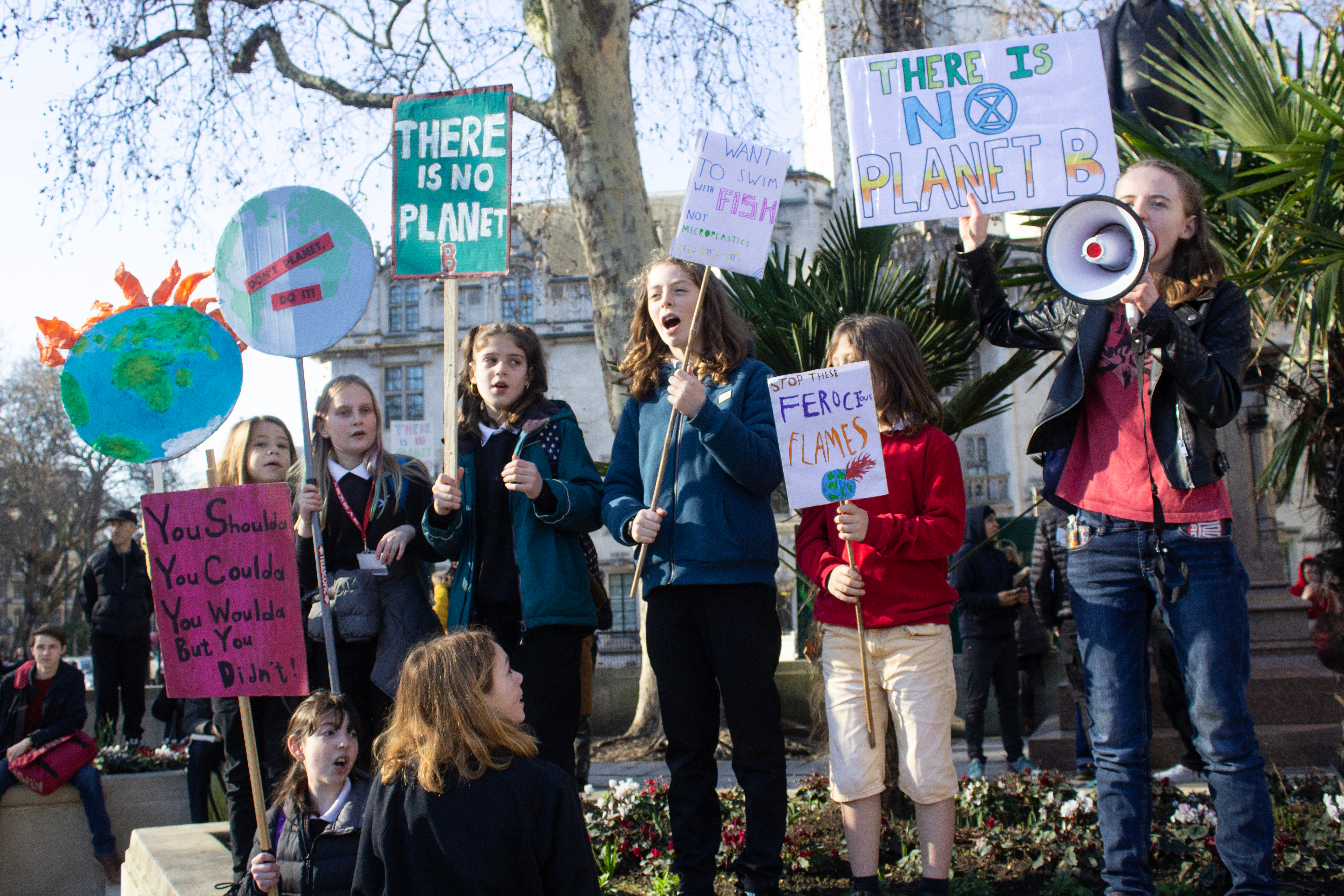Last week the UK’s Environment, Food and Rural Affairs Secretary, Michael Gove, admitted that “we have not done nearly enough” on man-made climate change. Gove went on, “Suddenly in the past few years it has become inescapable that we have to act. The time to act is now, the challenge could not be clearer, Greta you have been heard.” Greta Thunberg whose lone protest in Stockholm has sparked a wave of climate protests by young people around the world argues that her future and those of other children have been “sold”.
Carbon pollution is moving up the political agenda with school children striking and the growth of the Extinction Rebellion movement.
Earlier in April scientists working in Antarctica found fossilised mummified shrub material in rocks just 500km from the South Pole. Back in the Pliocene, three to five, million years ago when our earth was -3 degrees warmer than it is today and when there were around 400 CO2 molecules for every million molecules of air and sea levels were perhaps 10 to 20 metres higher than they are today. Today we are over 412 ppm and rising. More
We have been addressing the carbon issues at WTM for several years and we have identified some good practice in the Responsible Tourism Awards. There is a category in the 2019 World Responsible Tourism Awards for any business or destination which has demonstrated practical means of reducing carbon and other greenhouse gas emissions in any part of the tourism industry. More in Cape Town, at WTM Africa, we heard about what can be achieved by hotels, saving money and reducing emissions with five year payback periods. More
At Arabian Travel Market we heard about progress being made in the region in reducing carbon emissions from hotels. Dubai Sustainable Tourism has 80% of the hotel industry engaged with its carbon calculator programme and over the next 18 months sustainability performance will be part of the hotel grading classification system. Swiss-Belhotel International is working with developers to build more carbon efficient hotels as well as tackling water waste and plastics. IHG in the MENA countries has ambitious management KPIs for carbon reduction both in new builds and in retrofitting existing hotels. The Expo 2020 site has strong sustainability standards which it is requiring all country pavilions to meet as well as developing Lead Certified pavilions, one of which is on sustainability and as a legacy will become a children’s museum. There is an awareness of the importance of addressing carbon emissions as a matter of urgency in the UAE and some leading technology – we don’t hear enough about the progress being made in the region.
There are challenges in all sectors of travel and tourism but the elephant in the room is aviation. Airlines emit 80% of our industry’s greenhouse gasses and air travel is growing at 5% per year. As other industries reduce their carbon emissions aviation will account for ever-larger shares of global emissions. More
Yesterday Responsible Travel launched the first chapter of their manifesto for change in the tourism industry, The Fork in the Road. They are in the industry, concerned about its future and like all of us in the Responsible Tourism movement convinced that it can be fixed. But it needs to be fixed, we need to take action – business, as usual, is not good enough.
Aviation fuel is untaxed, the polluter pays principle has not been effectively applied to the airline industry. When consumers pay a carbon offset, the airlines and manufacturers evade their responsibility.
The International Civil Aviation Organisation has successfully relied on the 1944 Chicago Convention to avoid taxation and to maintain business as usual. It has taken them almost 20 years to develop CORSIA (Carbon Offsetting and Reduction Scheme for International Aviation) and that will not apply to domestic aviation.
As Responsible Travel’s Aviation and Climate Change manifesto chapter makes clear carbon offsetting cannot achieve the change needed. In 2017 a European Commission funded research project found that 85% of offset projects under the Kyoto Protocol’s Clean Development Mechanism (CDM) – some of the most highly regarded offset schemes in the world – failed to reduce emissions. From 2021 the EU will stop allowing offsets to be counted towards emissions targets, except for aviation.
Those who feel a degree of guilt about flying are encouraged to buy carbon offsets, imagine if when we filled our tanks at the service station we were asked to buy offsets. Would we?
Consider infidelity and off-setting
Consumers are increasingly demanding that producers and suppliers address the sustainability of the goods and services offered to us to purchase – the same pressure needs to come on the manufacturers of aeroplanes and providers of flights. The aviation industry is our sector’s Achilles’ heel.
In the motor industry, there has been rapid progress in developing more carbon efficient engines and in reducing emissions. Similar pressure needs to be placed on airlines and aeroplane manufacturers. The planes being brought into service now are expected to be flying in 30 years’ time, for sure the regulatory framework will be very different by then.
Change is coming we need to make aviation better or accept that its failure to address its carbon emissions will damage our industry, damage it badly.
At WTM we are looking for solutions to share through the Responsible Tourism Awards – if you know of businesses or destinations effectively making tourism better encourage them to apply of an Award











Asking questions are really nice thing if you are not understanding something entirely, however this article provides good understanding even.
Just wondering how buying offsets or tax more fuel will help to improve environment? Only what will happen is that big fat rich cats will be even bigger and richer. People will not travel less so the impact will move somewhere else. Companies, manugacturers, transport providers of all kinds should be motivated and encouraged to invest in better cleaner technology or even forced if that would be the case. Taxes and more money sucked from consumers will not help, dont think so